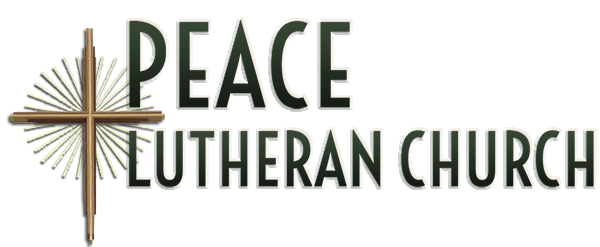Answer to his question: A new birth that reclaims Jesus
John 3:1-17
1Now there was a Pharisee named Nicodemus, a leader of the Jews. 2He came to Jesus by night and said to him, “Rabbi, we know that you are a teacher who has come from God; for no one can do these signs that you do apart from the presence of God.” 3Jesus answered him, “Very truly, I tell you, no one can see the kingdom of God without being born from above.” 4Nicodemus said to him, “How can anyone be born after having grown old? Can one enter a second time into the mother’s womb and be born?” 5Jesus answered, “Very truly, I tell you, no one can enter the kingdom of God without being born of water and Spirit. 6What is born of the flesh is flesh, and what is born of the Spirit is spirit. 7Do not be astonished that I said to you, ‘You must be born from above.’ 8The wind blows where it chooses, and you hear the sound of it, but you do not know where it comes from or where it goes. So it is with everyone who is born of the Spirit.” 9Nicodemus said to him, “How can these things be?” 10Jesus answered him, “Are you a teacher of Israel, and yet you do not understand these things?
11“Very truly, I tell you, we speak of what we know and testify to what we have seen; yet you do not receive our testimony. 12If I have told you about earthly things and you do not believe, how can you believe if I tell you about heavenly things? 13No one has ascended into heaven except the one who descended from heaven, the Son of Man. 14And just as Moses lifted up the serpent in the wilderness, so must the Son of Man be lifted up, 15that whoever believes in him may have eternal life.
16“For God so loved the world that he gave his only Son, so that everyone who believes in him may not perish but may have eternal life.
17“Indeed, God did not send the Son into the world to condemn the world, but in order that the world might be saved through him.”
Today is Holy Trinity Sunday. You won’t find any reference in the Bible about a special day to celebrate our understanding of God revealed as Father, Son and Spirit, although our understanding of God revealed in these three ways does come from the scriptures. As a special celebration of the church, it wasn’t universally observed until the 14th century when Pope John XXII ordered the celebration and it became a primary feast day on the order of Pope Pius X in 1911.
We could spend time this morning trying to untangle the mystery of the trinity, but sometimes I believe that the mysteries of faith are best left as things to be experienced rather than explained. Plus, it seems to me that trying to describe the Trinity within the limits of human language is a bit like trying to describe colors to someone who was born blind; there is no appropriate frame of reference.
So, let’s not try.
Instead of asking “What about the trinity?,” I want to explore a different question:
“What about Nicodemus?”
We are introduced to Nicodemus in the Gospel of John. One of the things that makes us pay special attention to him is that, even though he isn’t part of Jesus’ inner circle, we are given his name.
What we know directly about Nicodemus is this: he was a Pharisee. That means that he was a highly educated man with significant status in the Jewish community. He knew the Mosaic law intimately, and it would be safe to assume that he lived a life of high ethical and moral standards.
He recognized the power of God at work in Jesus. But I suspect that one of the reasons he sought out Jesus to learn more about him is this:
In the world that Nicodemus lived in, your status was directly related to your birth credentials. The level of honor that an individual held within the society was determined at birth and it remained with you throughout your life. Nicodemus was a man who possessed a high level of honor by virtue of his birth.
He must have been very curious about this man of humble birth, without the credentials for honor within human society, who seemed to be a teacher of great wisdom, who was treated with such deference and respect by some, and who was performing signs that were clearly from God.
Nicodemus would have known that his own birth credentials afforded him a lifetime status of high honor, especially within the religious establishment of Judaism. He would have been very confused about Jesus.
And then, it got even more confusing when this man of privileged birth and impeccable religious credentials was told by this upstart, presumptuous peasant that in order to comprehend- to “see”- the kingdom of God, he would have to be born “from above.”
A different kind of birth
To Nicodemus, there was only one kind of birth that determined your place of honor (or lack thereof) within human society.
So his response to Jesus’ assertion that another birth was required to see the kingdom of God was to ask with total astonishment if Jesus was suggesting that it was somehow possible to re-enter your mother’s womb and be born again.
And Jesus, equally astonished, asked Nicodemus if he was indeed a teacher of Israel and yet unable to grasp what it meant to be born of water and the Spirit.
I would argue that we in the 21st century have as much difficulty understanding this teaching as Nicodemus did. Even as Lutheran Christians who are deeply grounded in the theology of grace, we tend to cling to this idea that the first step in becoming a Christian is to decide to be “born again” (or to have our parents “decide” for us when we are infants) as though we were in control of the process, and that there are some of us who are more worthy of receiving this gift of new birth than others. There also seems to be a persistent belief that this “birth” is an instantaneous process.
But birth is NOT a sudden process. Speaking from my experience as a labor and delivery nurse, I can tell you that it’s usually a long, labor-intensive process.
From curious to cautious defender
That brings us to some more interesting things about Nicodemus. After this secretive visit to Jesus, we hear about him again in the 7th chapter of John. When his fellow Pharisees wanted to condemn Jesus on the sole grounds that he lacked the appropriate birth credentials (after all, there was no biblical testimony about a prophet who hailed from Galilee), Nicodemus challenged them on the word of law that requires a person to be given a hearing, and to be judged on their own actions and words. While he had not been able to go so far as to become a follower of Jesus, he had certainly come to believe that Jesus was not to be judged on his social position, but that he was worth listening to and given serious consideration.
After Jesus’ death, John’s gospel says that Nicodemus brought burial spices and helped Joseph of Arimathea bury Jesus’ body.
We don’t know any more then these three episodes in Nicodemus’ movement into new birth and the ability to see the kingdom of God that Jesus revealed. But we can follow his progress as he grew from being a secret, night-time visitor, to a public defender of Jesus, to openly participating in the respectful burial of a man executed as a rebel by the occupying civil power and condemned as a blasphemer and heretic by the religious hierarchy.
In his movement toward a new birth, Nicodemus had to move past his cultural and religious boundaries, his elitist understanding of honor and respectability, to see God at work in a lower-class peasant from a nondescript, backwater village in what was considered an unimportant and insignificant region of the land. It can’t have been an easy or painless process.
Jesus was deconstructing boundaries between people that had been centuries in the making.
Nicodemus today: Reclaiming Jesus
So how might the new birth of Nicodemus have anything to do with us?
This week, in Washington, D.C., a respected group of Christian elders, led by the Most Rev. Michael Curry, presiding bishop of the Episcopal Church, (and who recently captured the ears and hearts of the world with his sermon at the British royal wedding) and the Rev. Jim Wallis, an American evangelical pastor and the founder of Sojourners, led thousands in a candlelight vigil and march to the White House to launch a movement called “Reclaiming Jesus.” Bishop Curry says of this movement, “We are not a partisan group. We are not a left-wing group. We are not a right-wing group. We are a Jesus movement.”
The Reclaiming Jesus movement is seeking to recall followers of Jesus into a faith that follows Jesus’ own rejection of human-made, artificial boundaries.
One section of their statement of purpose and belief says this:
“WE BELIEVE we are one body. In Christ, there is to be no oppression based on race, gender, identity, or class (Galatians 3:28). The body of Christ, where those great human divisions are to be overcome, is meant to be an example for the rest of society. When we fail to overcome these oppressive obstacles, and even perpetuate them, we have failed in our vocation to the world—to proclaim and live the reconciling gospel of Christ.”
This movement is just one example of Christians who, like Nicodemus, are coming to recognize that we can get pulled into human systems and patterns of behavior and lose sight of who we were created to be: getting caught up in the values of human society and cultural standards and forgetting that every one of us is created in the image of God; forgetting that concepts of honor and privilege as categories that justify oppression or subjugation of fellow human beings do not reflect the kingdom of God.
New birth into God’s new Kingdom
The “Reclaiming Jesus” movement says it is recalling people to faith. That’s what the gospel of Jesus Christ has been trying to do for centuries. To guide us through a new birth that allows us to recognize that we are called to be servants, not to make servants of others; that we are called to love one another in the same way Jesus loves us; that we are called to be people of peace, not people of violence and warfare; that creation is not ours to own and exploit, but was entrusted to our care and for the support and well-being of everyone; that the weaker and more vulnerable a person is, the more they are to be given our care and protection.
So what about Nicodemus?
What about us? As we come to this communion table to be fed, may the love and grace of our Lord Jesus lead us into the rebirth that makes it possible for us to truly see the kingdom of God.
Amen.


